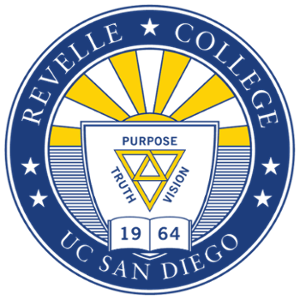Humanities 100. Advanced Topics in the Humanities
How I think about HUM 100...
I love that every section of HUM 100 is unique. Each section starts with an essential theme that has resonated throughout the tradition of Western literature and thought. The instructor takes one of those themes and develops a specific, focused topic that is revealed through a selection of core texts that span widely different time periods and cultural configurations. The possibilities are endless and wonderful when you combine an essential human question, such as Who am I?, with the special connections created by grouping great texts together, and you work through it all in guided conversations in a small community.
Antony Lyon, Director
HUM 100 Attendance Policy
Regular attendance and active participation are vital components of HUM 100. Because much of the course is built around discussion, peer-engagement, and in-class activities, students are not allowed to miss more than 20% of all classes during the quarter. Per Humanities Program policy, if a student misses more than 20%, then they will fail the course. In the case of extensive absences for situations beyond their control, it is the student’s responsibility to communicate with the instructor.
Spring 2026 Schedule
Please see the Schedule of Classes for a complete listing of days and times for each lecture and section. The Schedule of Classes will also include the reading list for each instructor.
The Good Life with Tatiana Zavodny
Asking for a Friend
Tatiana Zavodny
"Rooted in ancient Greek thought, the pursuit of a 'good life' endures as a central concept of the human experience. This class, The Good Life: Asking for a Friend, examines how individuals seek meaning to construct such a life. In this process, we will ask questions like: How do we balance autonomy with belonging to our larger communities or identities? How do we build a life of value, and how do we determine where that value lies? What do we owe to ourselves, and what do we owe to the people around us? Together, we will consider how we navigate complex internal desires and external pressures while trying to live a life of meaning. In this process, we will see the risks - and necessity - of asking life’s biggest questions...for a friend, of course.
Dr. Zavodny's seminars will be reading Seneca's On the Shortness of Life; a selection of Montaigne's essays; "Wit," a play by Margaret Edson; and The Midnight Library by Matt Haig.
Self and Community with Geoff West
Ephemeral Self - Identity and Transformation in Great Works
Geoff West
This course explores what it means to live an examined life within the constraints of society. From Socrates’ defense of moral integrity in Plato’s Apology to the social pressures of The Crucible, the inherited violence of Seamus Heaney’s North, and the utopian ambitions of Ursula K. Le Guin’s The Dispossessed, students examine how individuals navigate the tension between private conscience and public order. Through close reading, analytical writing, and comparative discussion, the course asks whether justice and truth can survive the demands of conformity and the fear of dissent.
